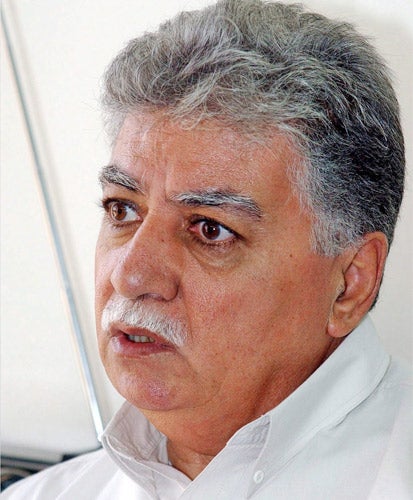Professor Donny George

Donny George Youk-hanna, who died on 11 March aged 60, was a former director general of the Iraq National Museum who led a fight to recover antiquities looted during the chaos of the allied invasion.
"Through his energy and his relationships with universities around the world, Donny George played a key role in recovering stolen items," Qais Hussein Rashid, head of the Iraqi Council of Antiquities and Heritage, said. About a third of the antiquities looted from the museum the month after the US-led invasion of Iraq in March 2003 had been recovered, Rashid said.
George (pictured left, AP), director of Iraq's National Museum from 2003 to 2005, said shortly after the invasion that US forces had committedthe "crime of the century" for failing to protect museums and archaeological sites. Days after the fall ofSaddam Hussein, 15,000 artifacts were stolen from the Museum as US troops looked on, many of them dating back around 6,000 years to the empires of Assyria and Babylonia.
George – he dropped his last name for professional purposes – was born in Al-Anbar province in October 1950, and was fluent in Assyrian, Neo-Aramaic, Arabic, and English. He was first hired by the National Museum in 1976, and the country's former Culture Minister Mufid al-Jazairi said, "His death leaves a great void because he was one of the brightest experts on the history of Mesopotamia. He was from a generation that was impoverished of archaeologists," Jazairi explained that Iraq had trained few specialists in ancient history between 1980-90 because of wars and sanctions.
George, who assumed the presidency of the Council of Antiquities and Heritage in 2005, fled Iraq with his family the following year after receiving death threats against his son. He left for the US , where he was appointed Visiting Professor of Anthropology and Asian Studies at New York's Stony Brook University.
"Donny George was a symbol of this country," Iraq's deputy culture minister, Jaber al-Jaber said. "With these candles we say goodbye with tears in our eyes."
Join our commenting forum
Join thought-provoking conversations, follow other Independent readers and see their replies
Comments
Bookmark popover
Removed from bookmarks